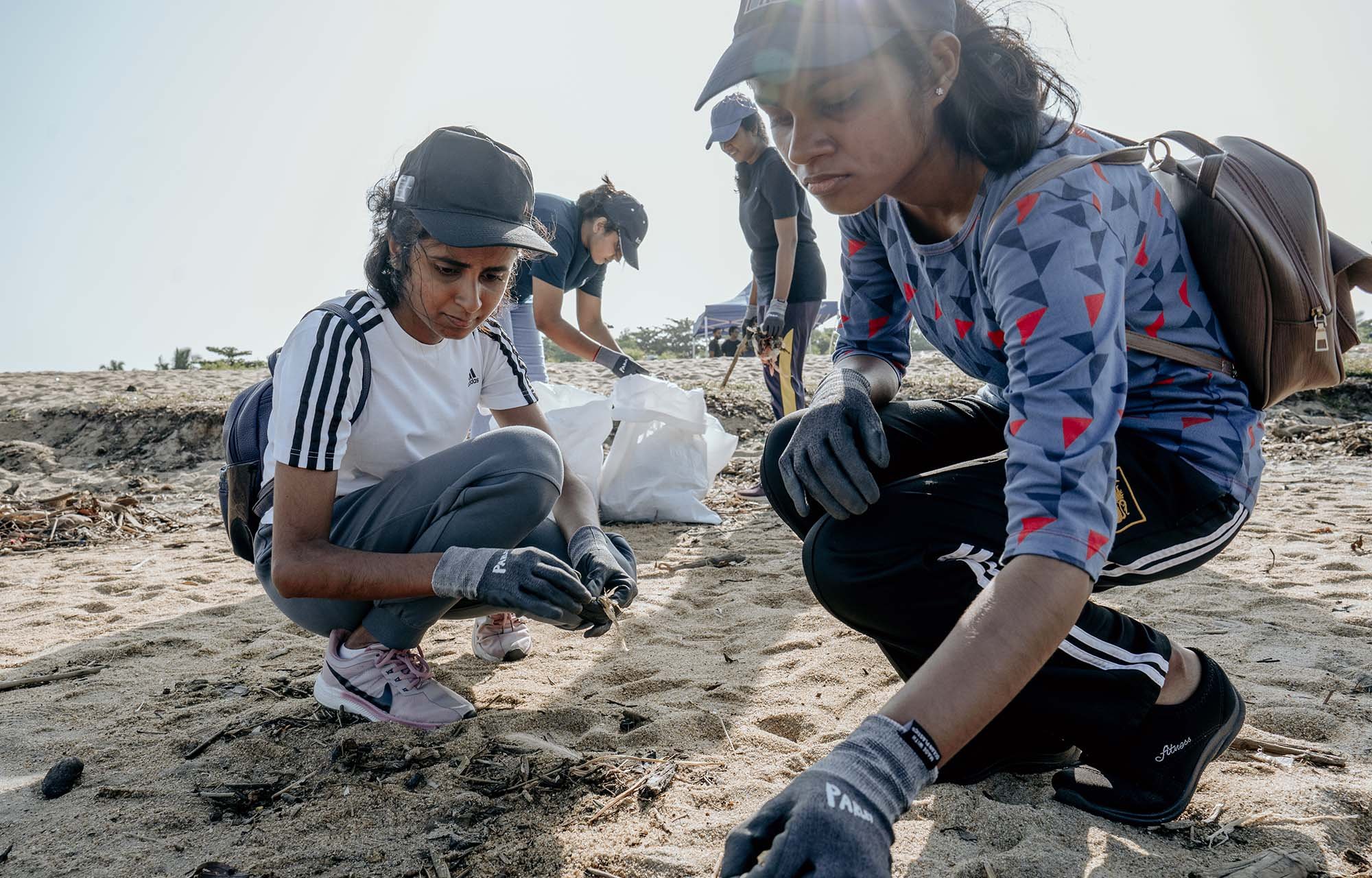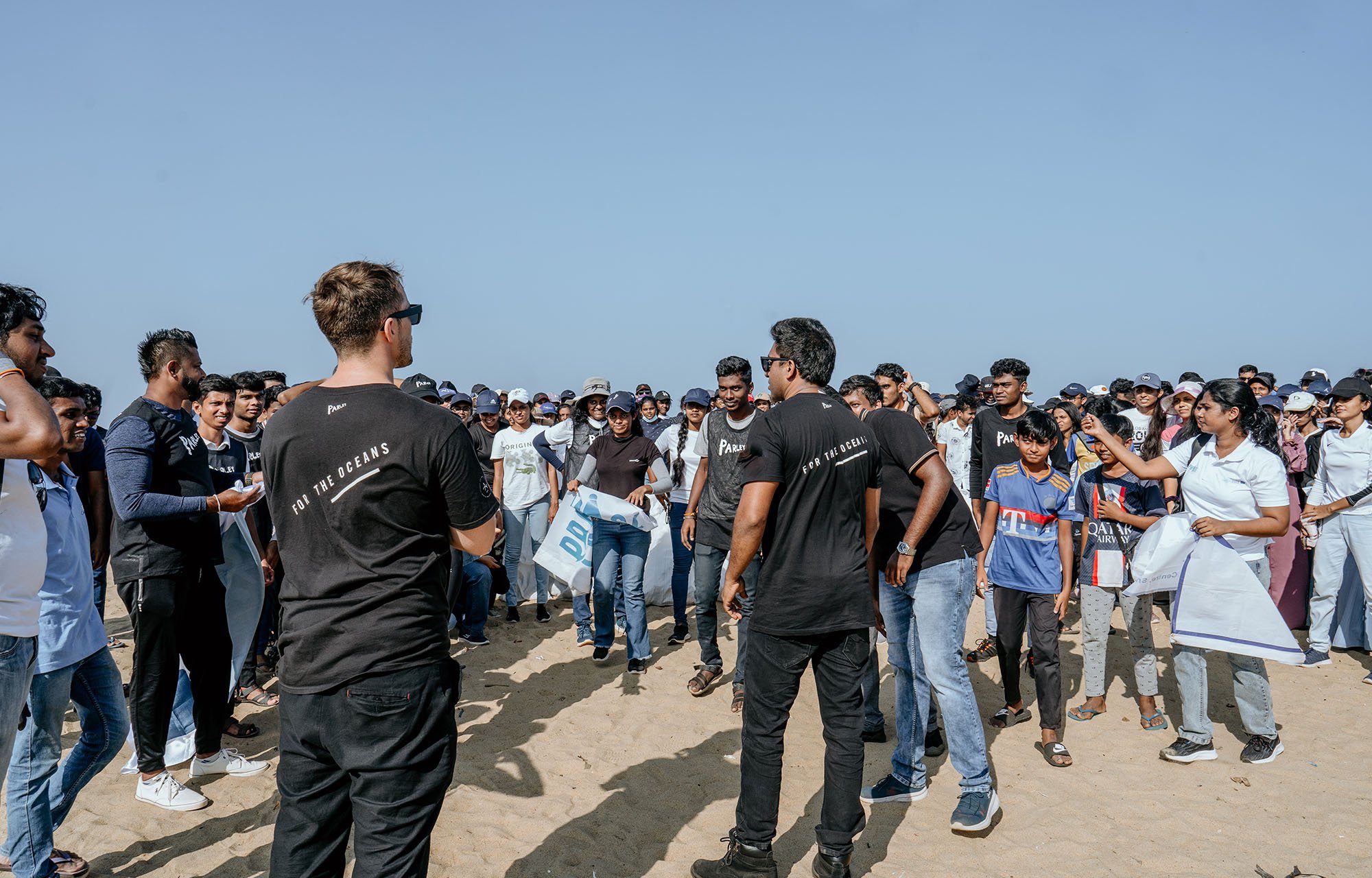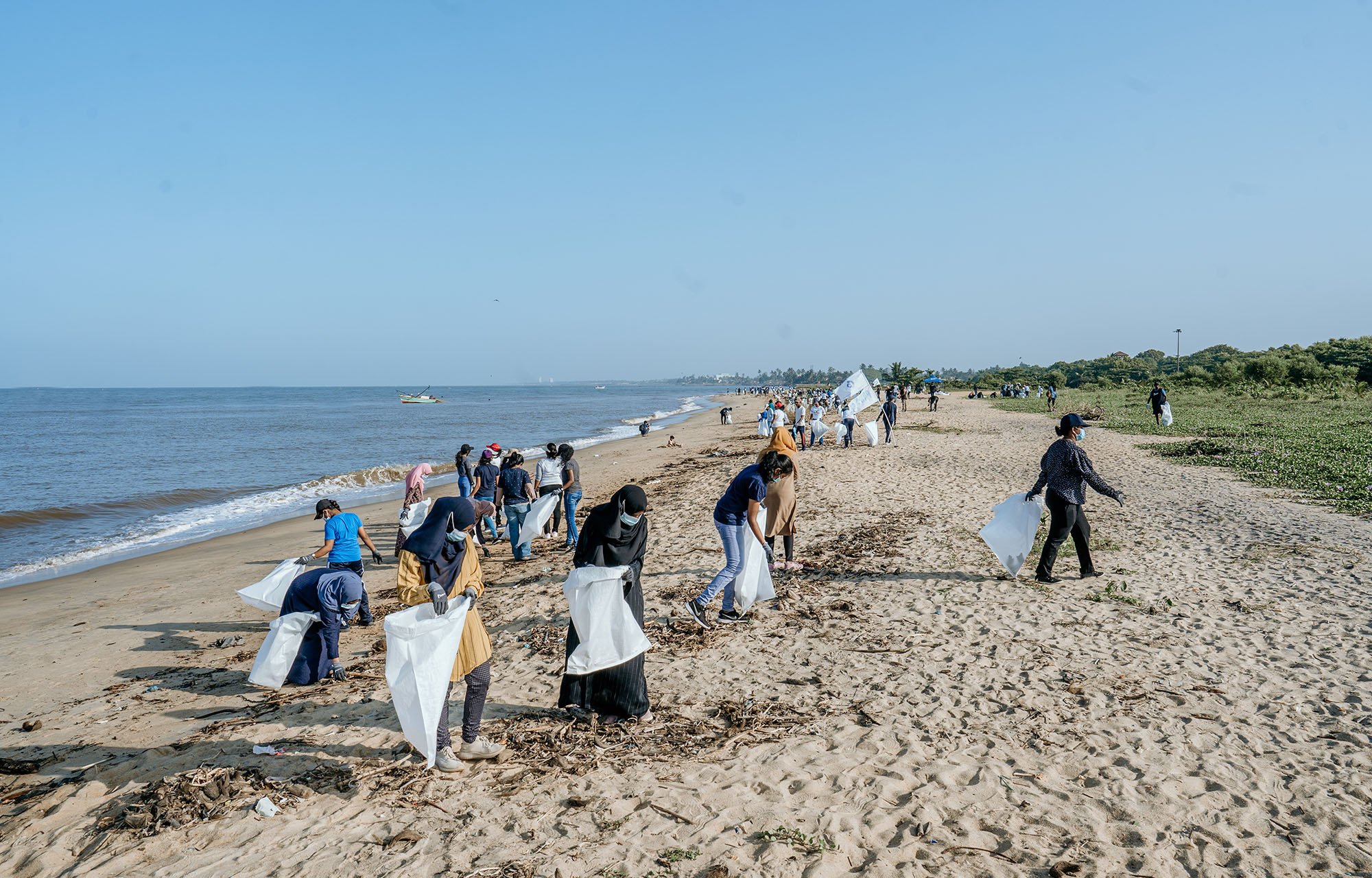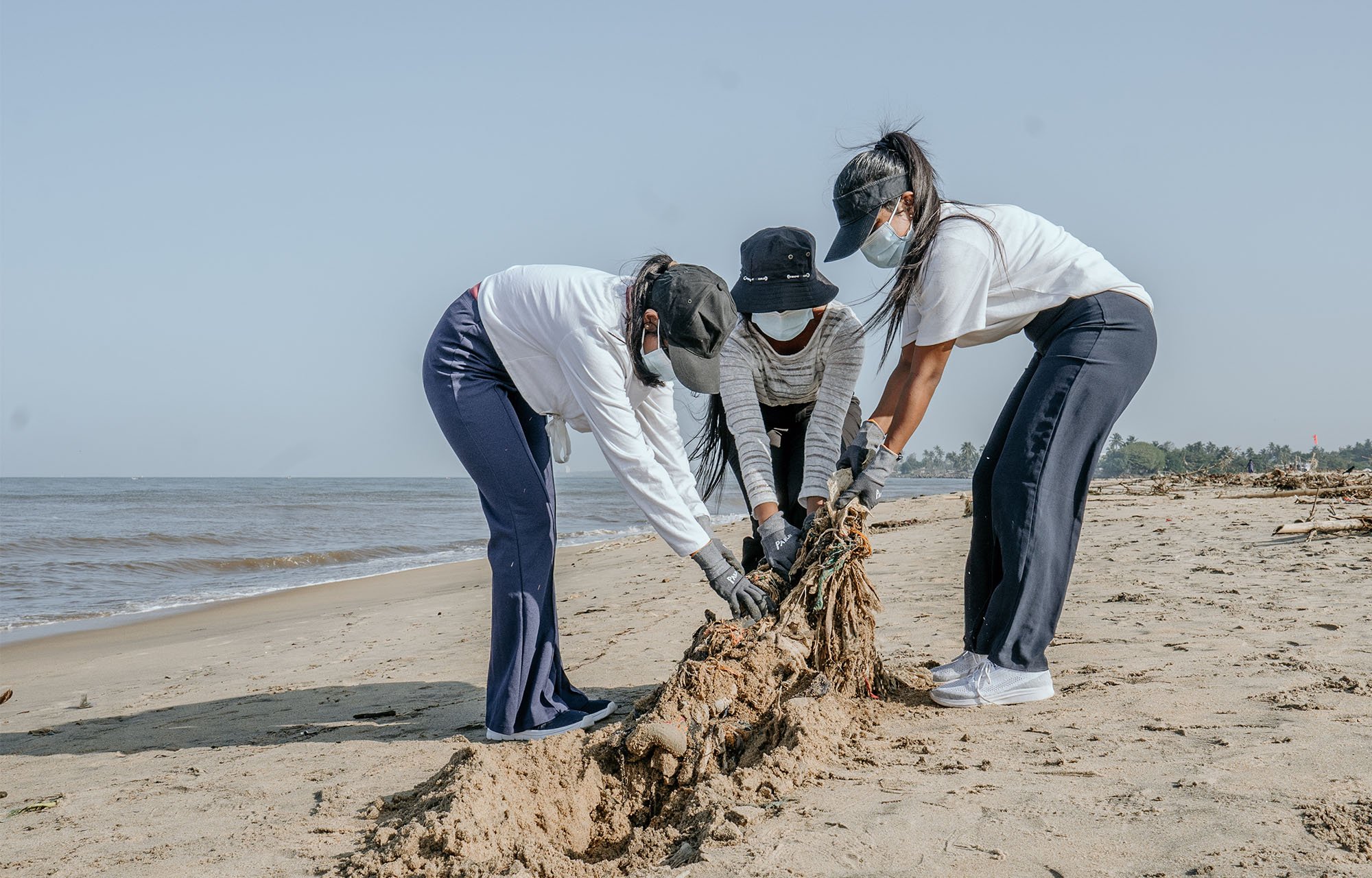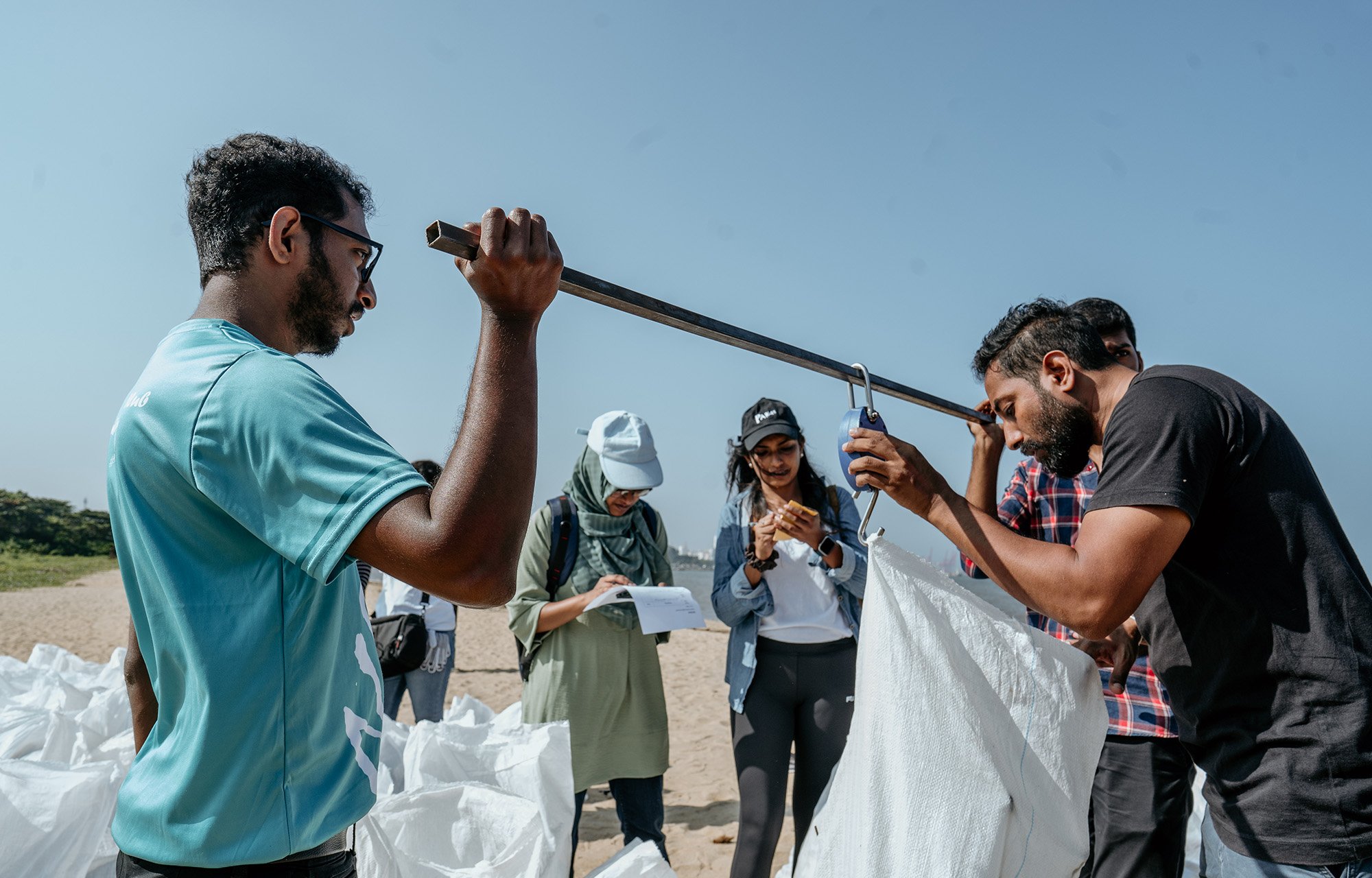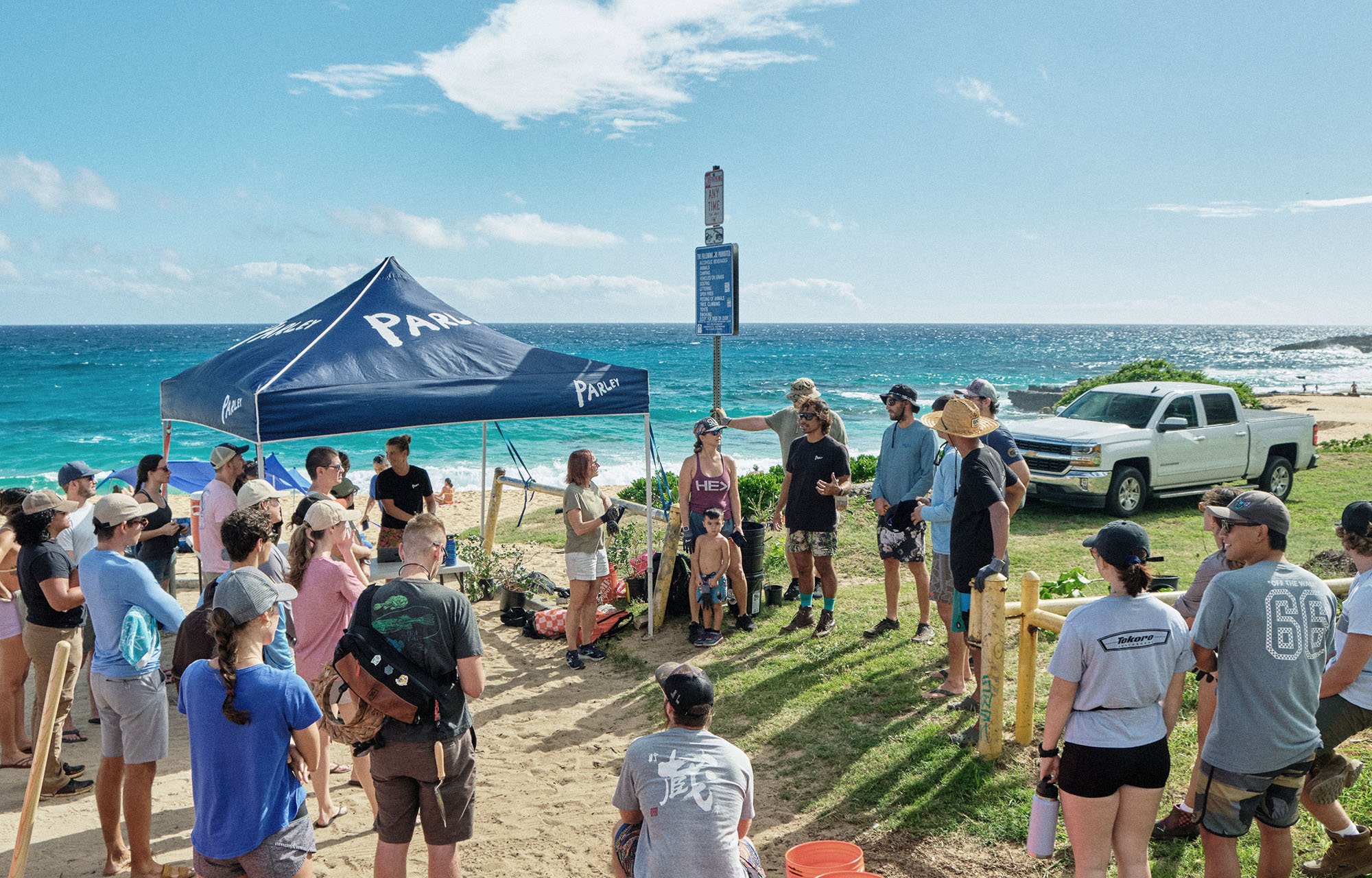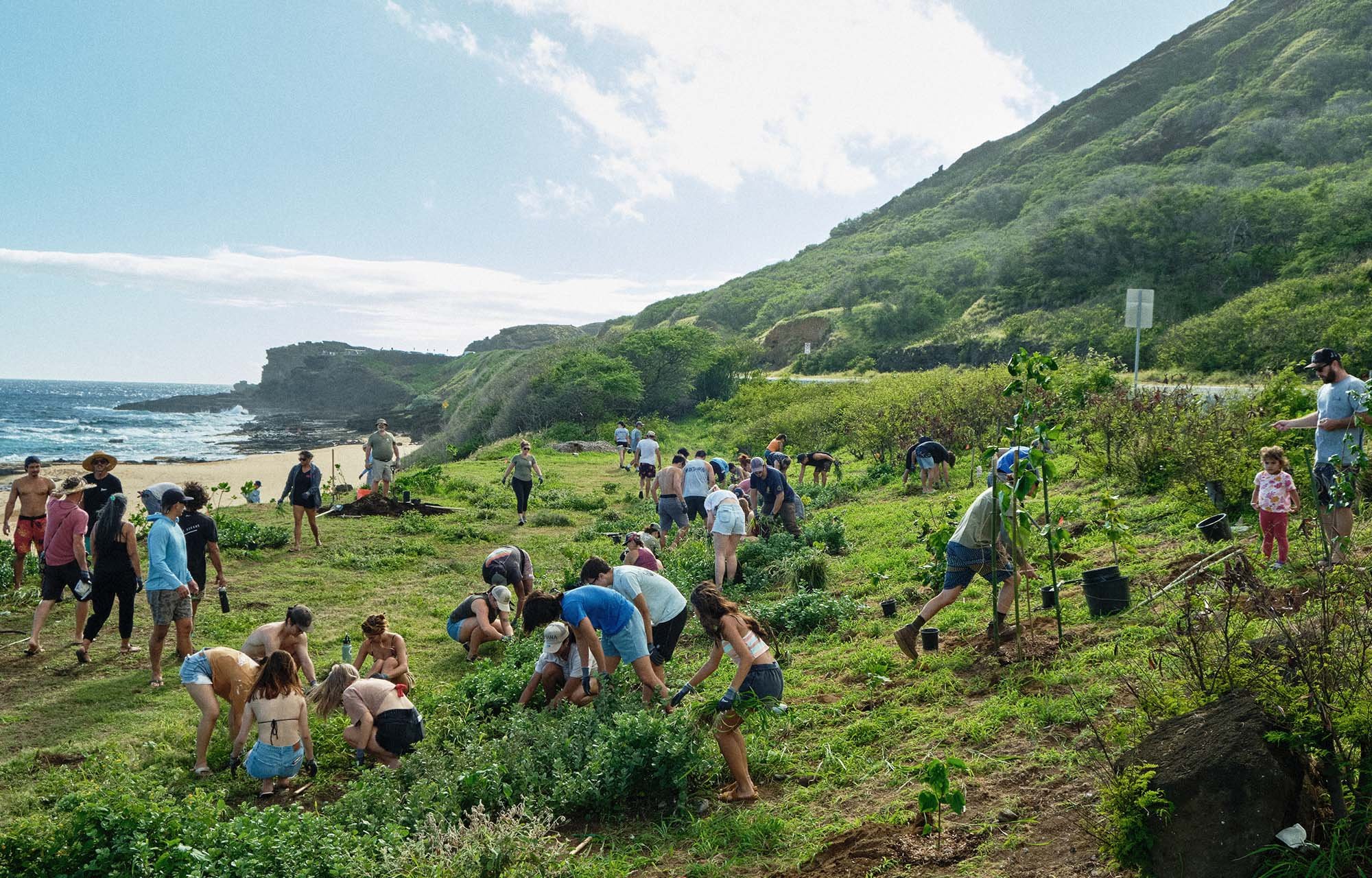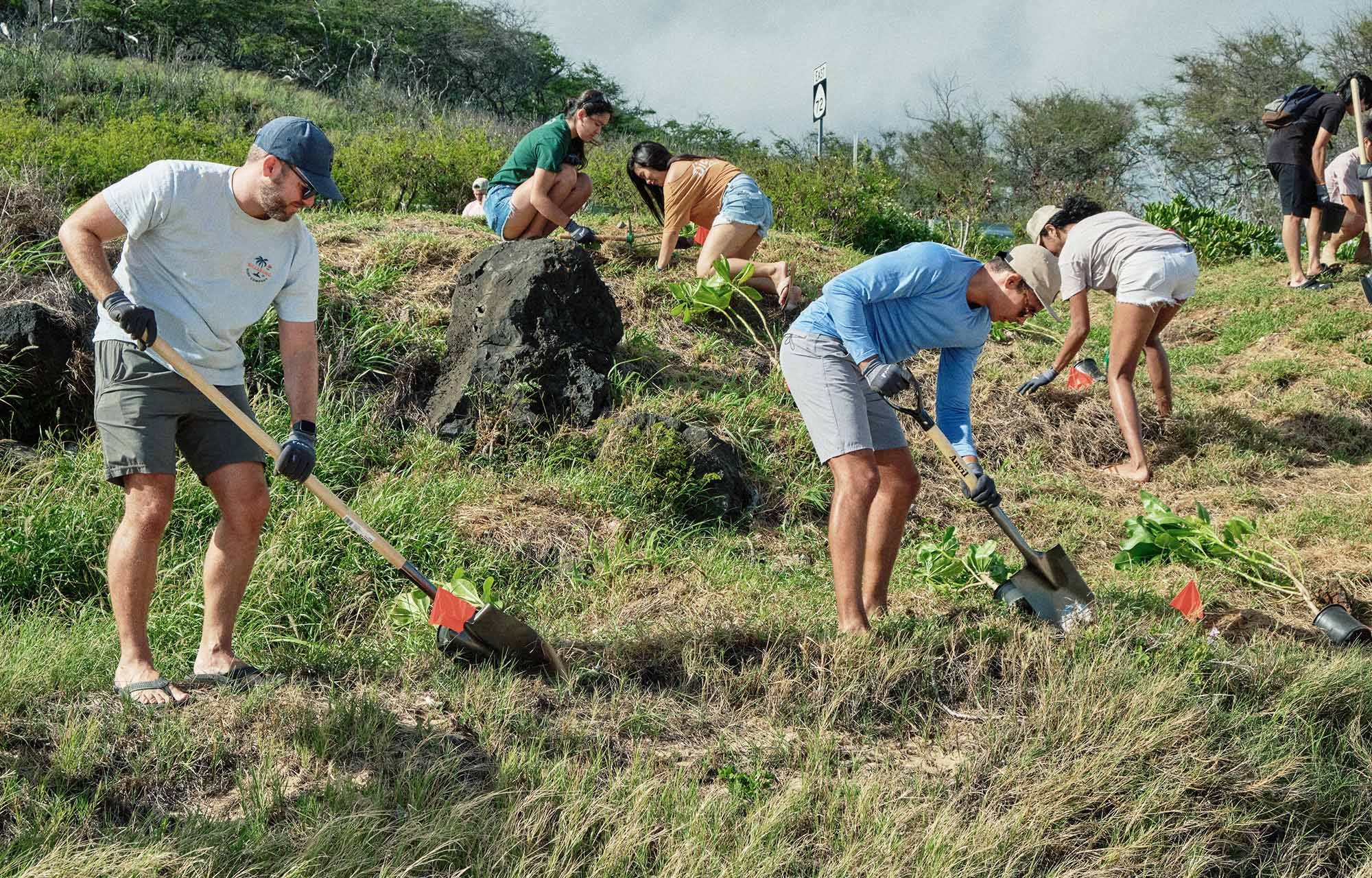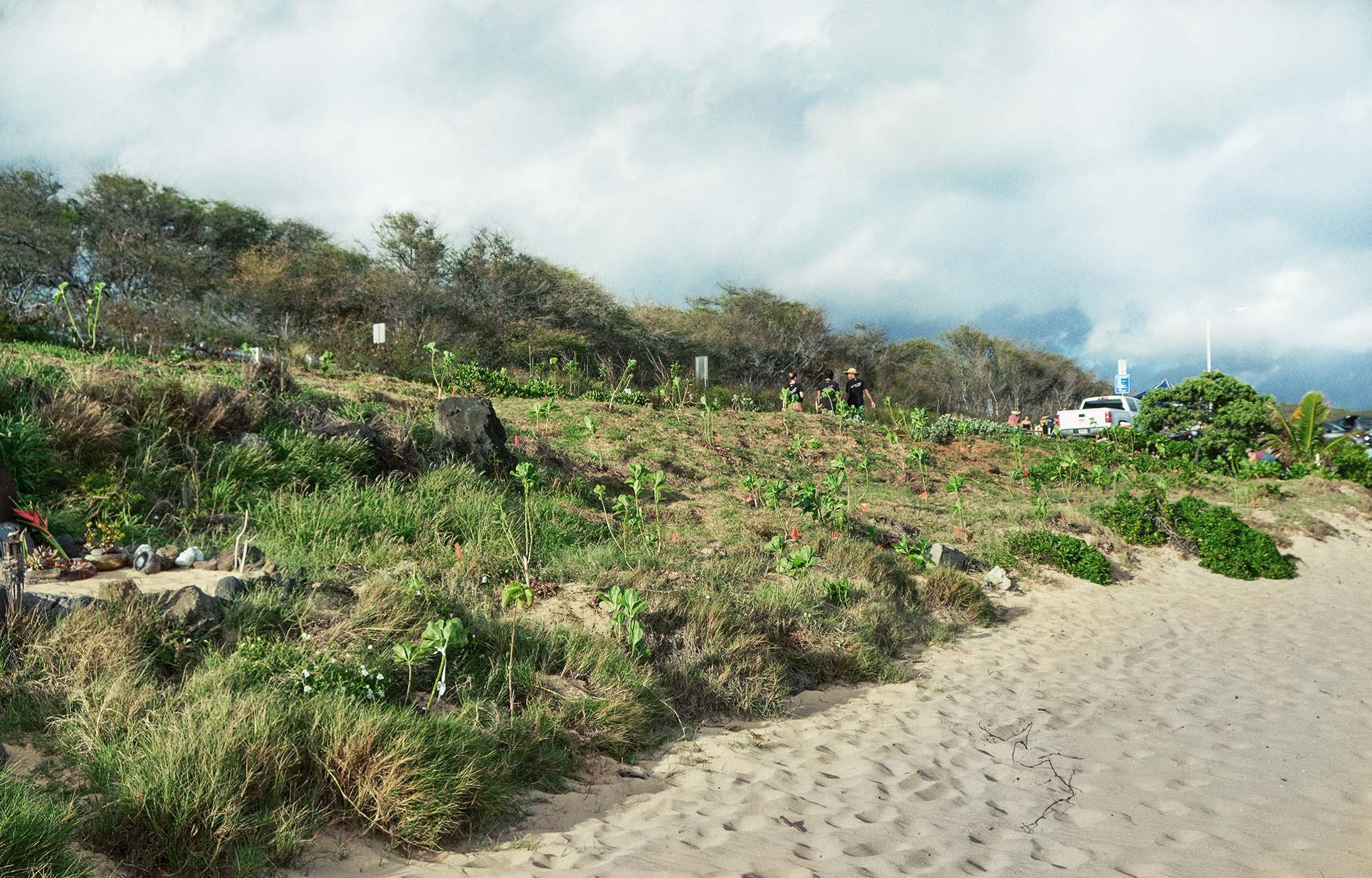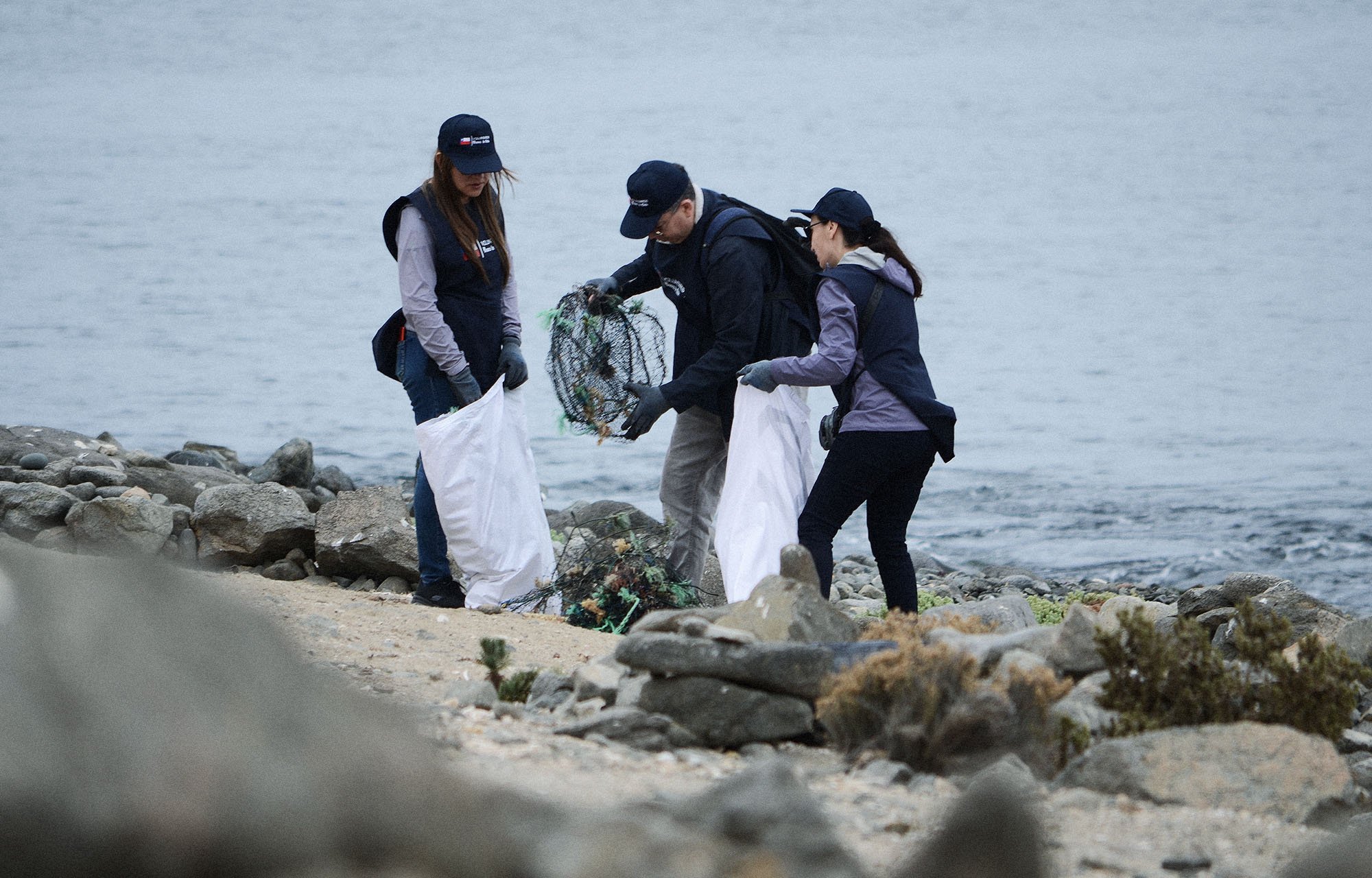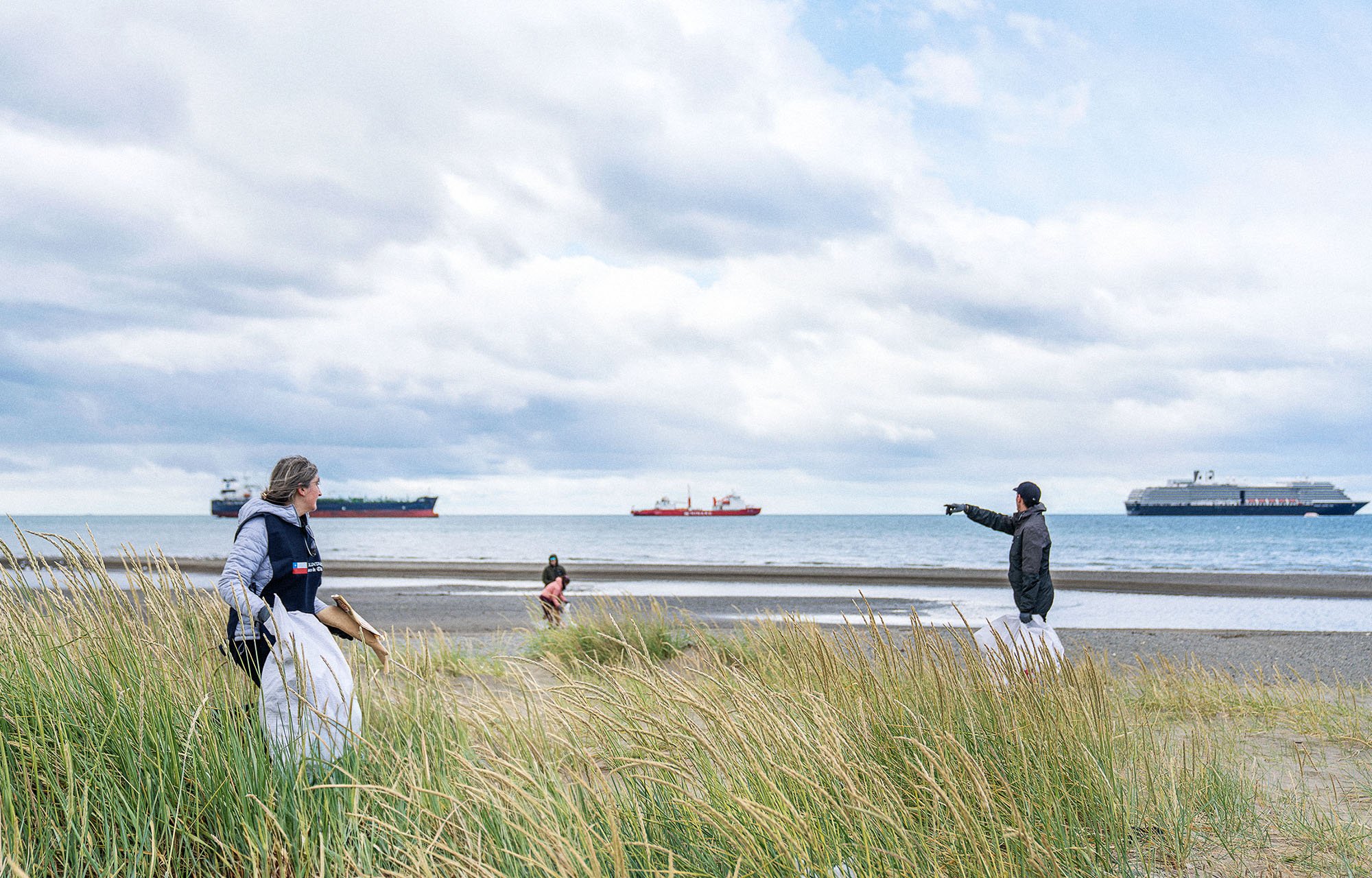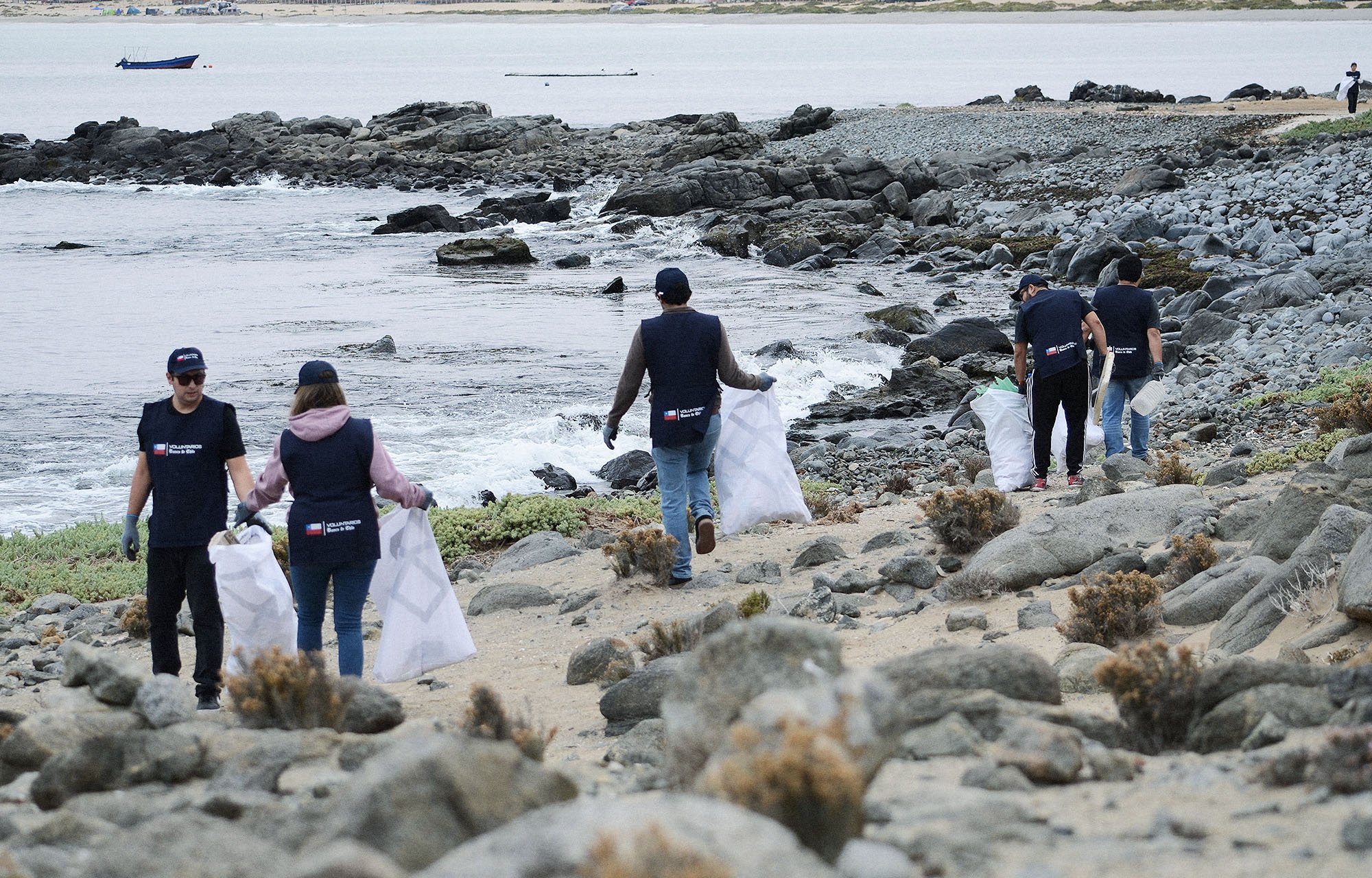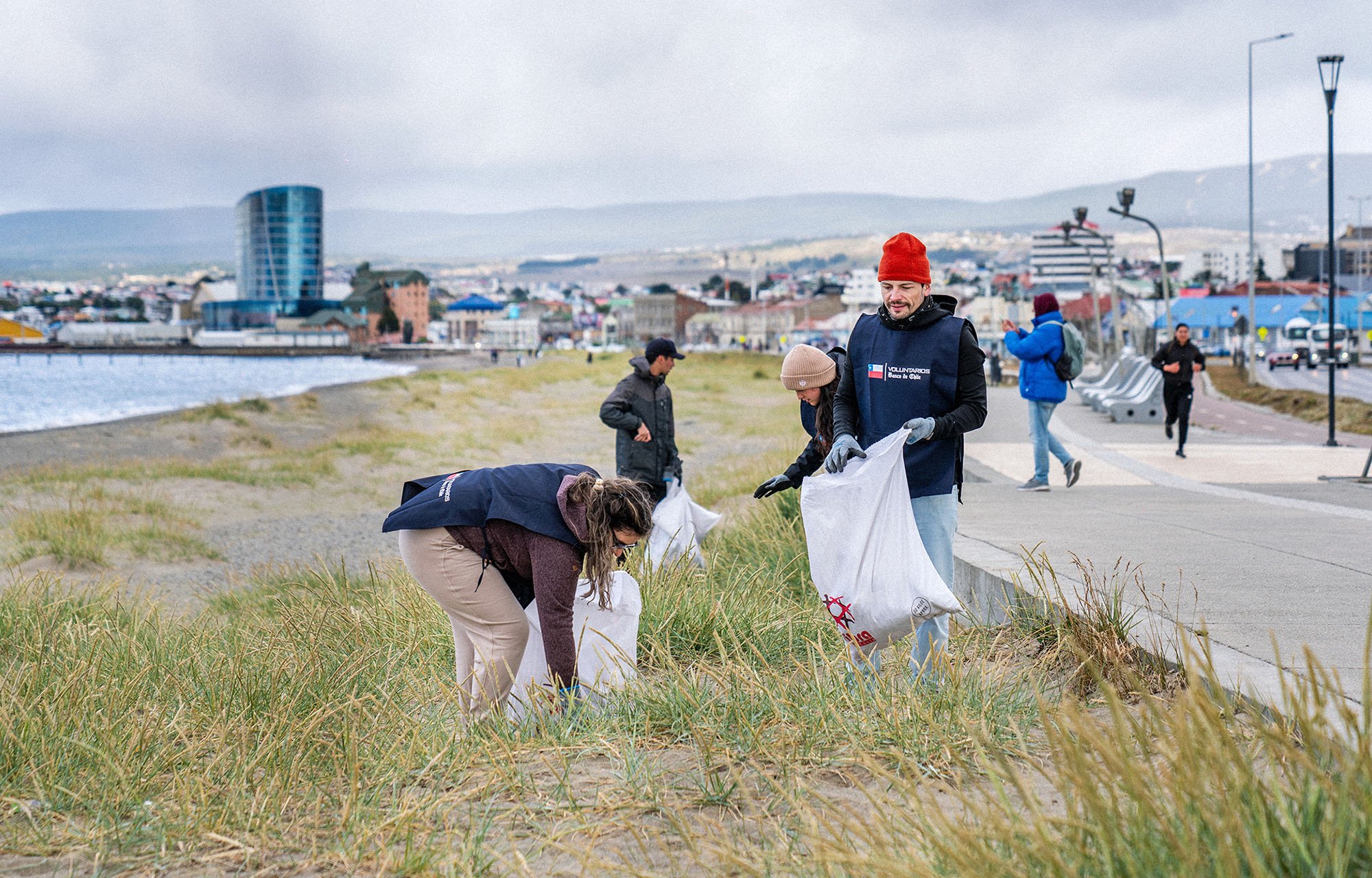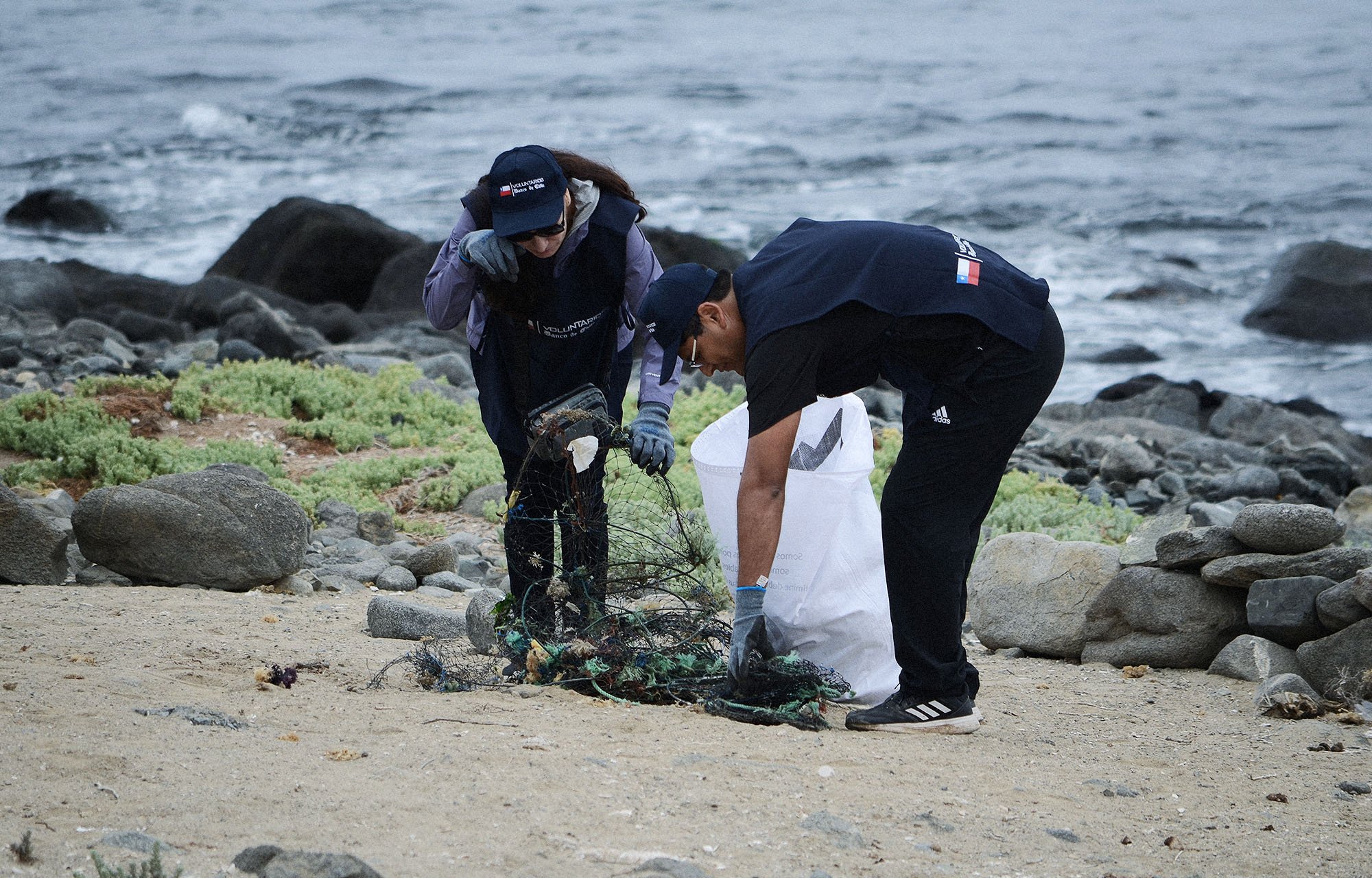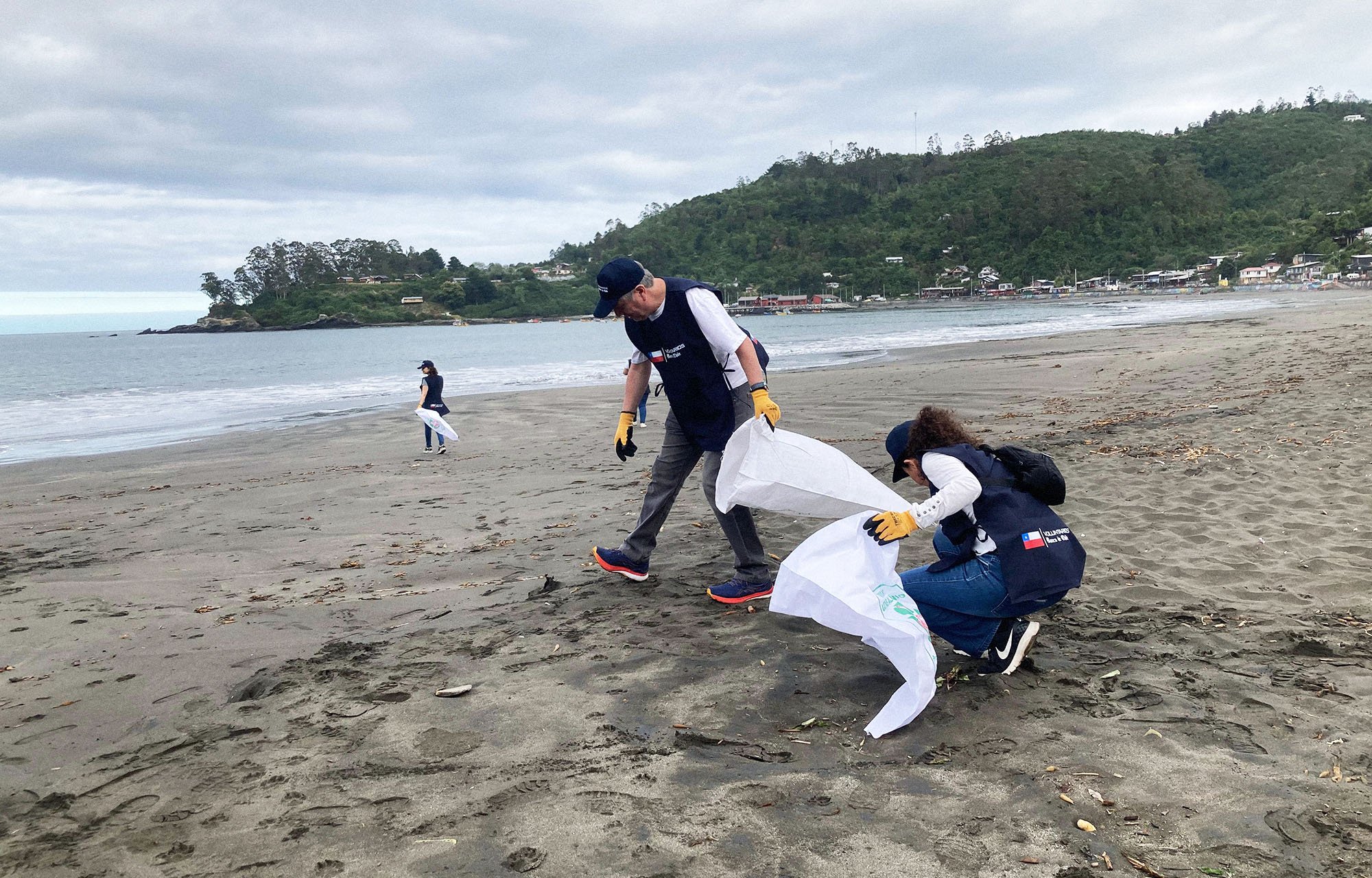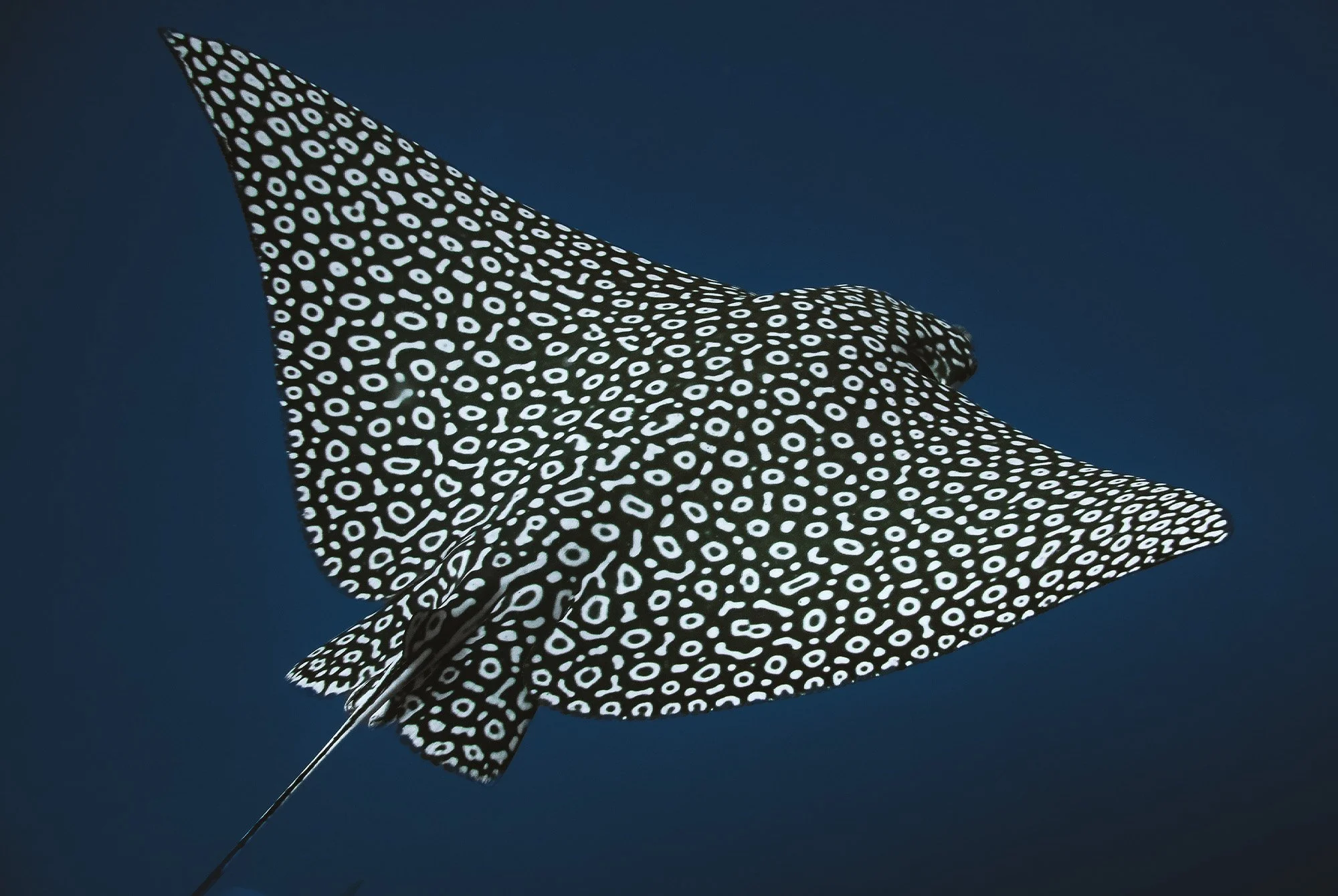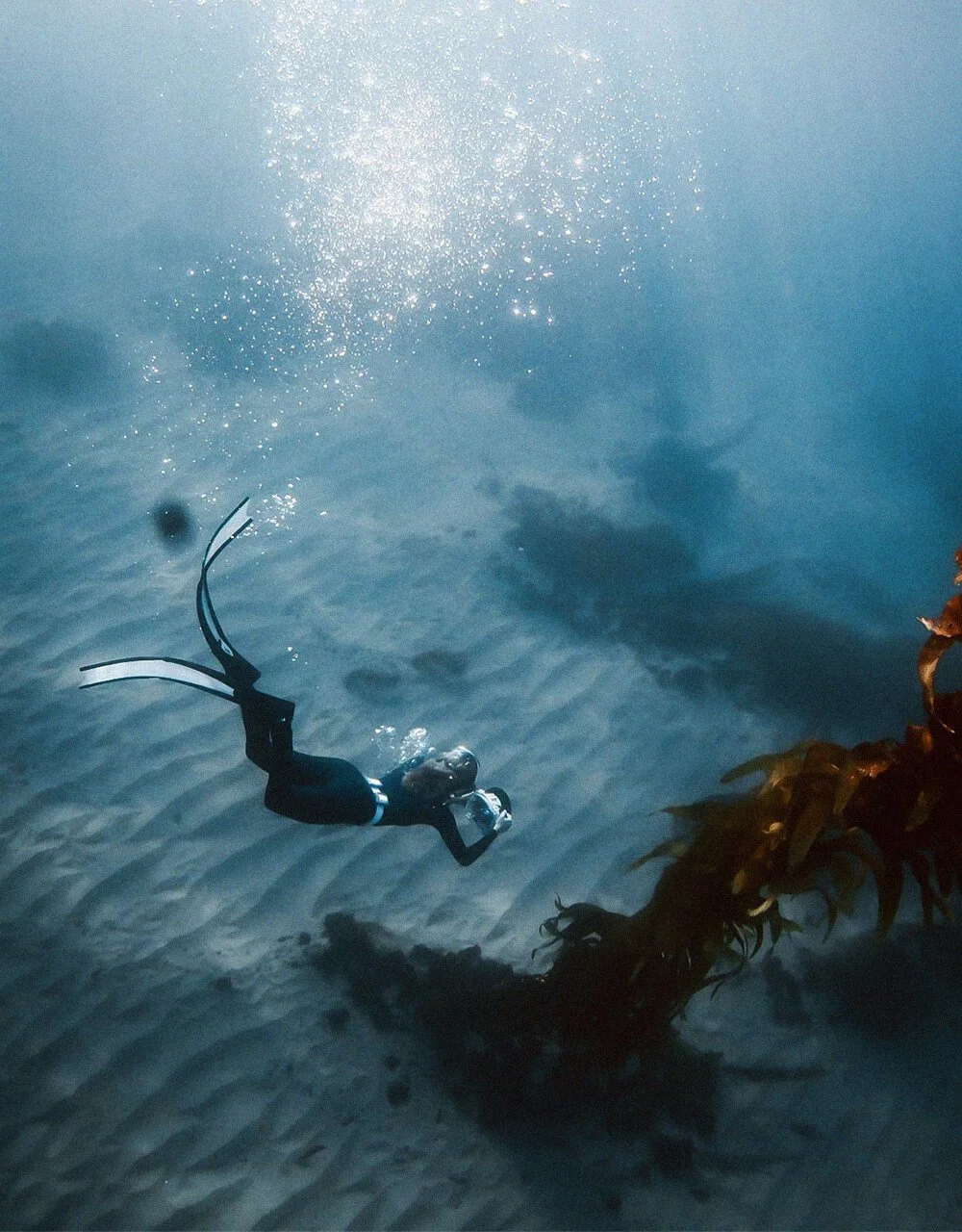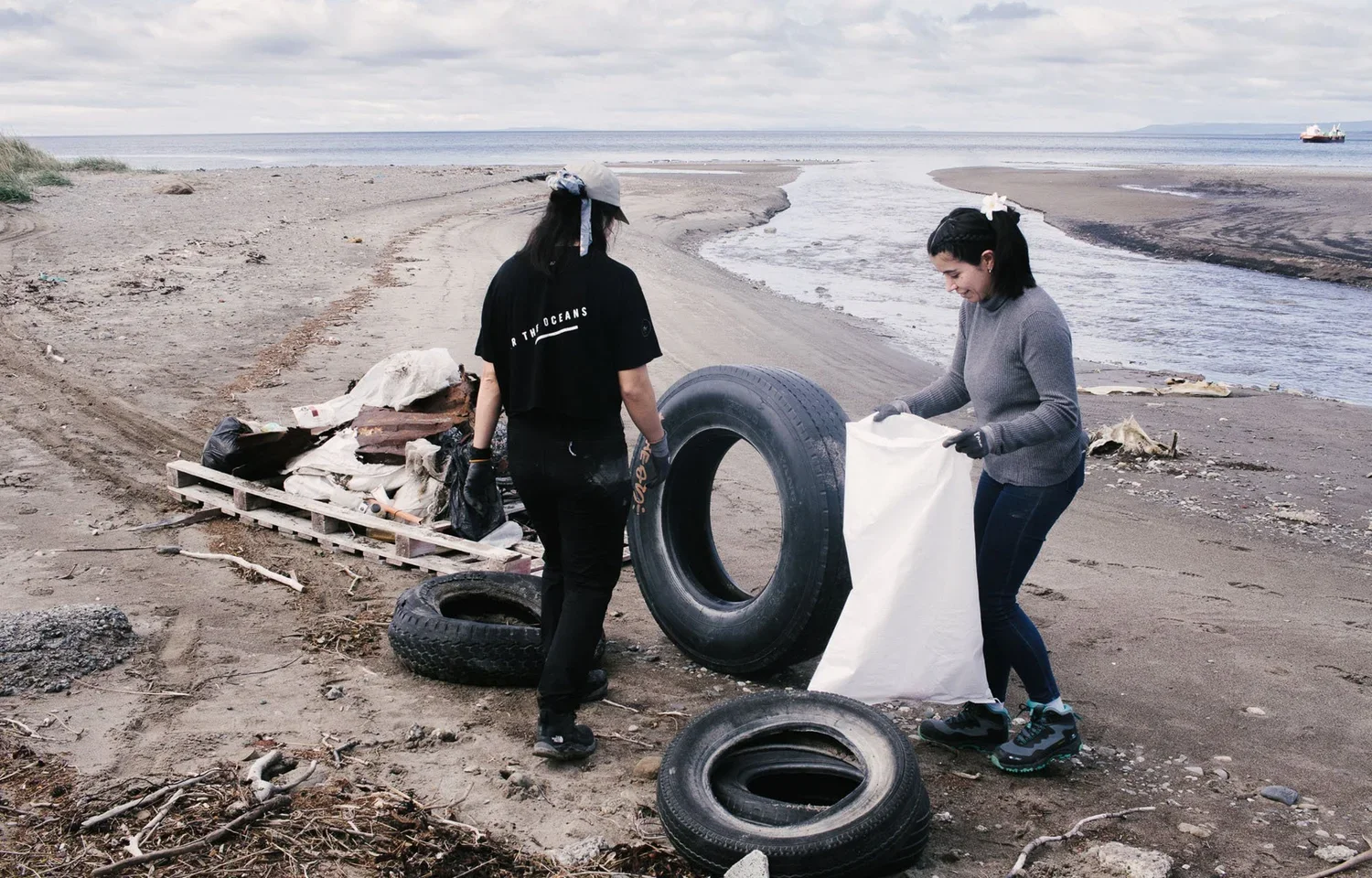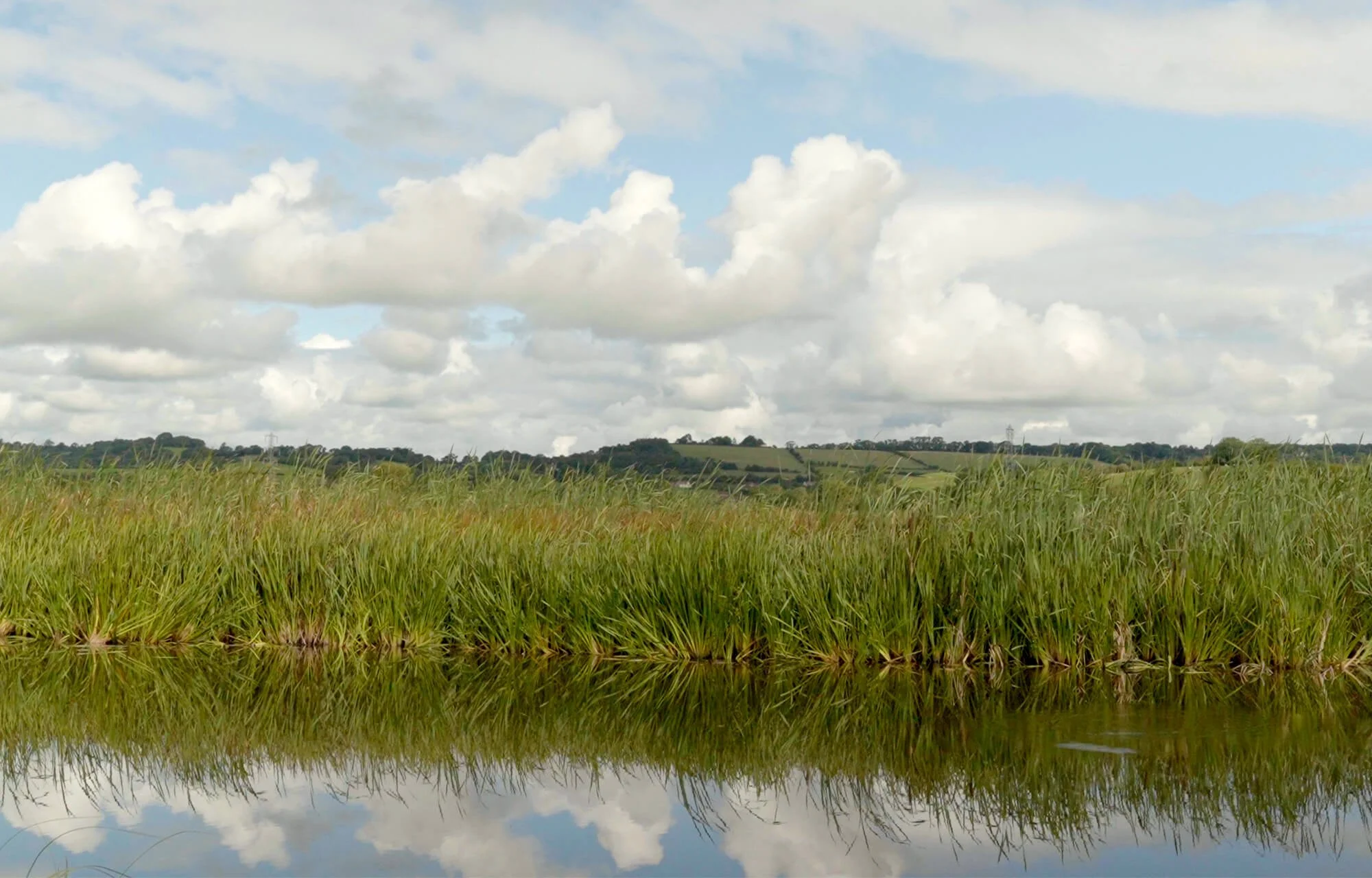FIELD NOTES
IN THIS EDITION of field notes, we Tackle one of the most polluted beaches in SRI LANKA, TRAVEL TO Hawaiʻi to help restore native species AND join parley Chile IN THE FAR SOUTH
SRI LANKA: COLLABORATING WITH UNIVERSITY STUDENTS TO CLEAN ONE OF THE COUNTRY’s MOST POLLUTED BEACHES
After a successful Christmas cleanup at Crow Island in December, Parley Sri Lanka rallied their troops to clean one of the most polluted beaches in Sri Lanka at the start of this year. Crow Island Beach Park is heavily impacted by accumulating plastic waste from the nearby mouth of the Kelani River. The fourth longest in Sri Lanka, this river flows through the most densely populated area of the country, carrying washed away and mismanaged waste downstream to the ocean. What doesn’t end up in the sea is partly washed ashore at Crow Island.
Parley Sri Lanka joined forces with the University of Sri Jayewardenepura, bringing 250 first semester students to help clean the beach. Support came from the EU-founded Project Promise and their local partner, NCPC. When arriving early in the morning, the volunteers found the beach heavily polluted with food wrappers, degraded plastic bags, fishing nets, plastic bottles and other debris. Before getting to work, the students learned more about plastic pollution, the non-degradable aspects of the material and the state of our oceans generally. Parley Sri Lanka explained the importance of Avoiding and Intercepting plastics on land and rivers. Parley’s AIR Strategy was introduced, and the students were further empowered with practical steps to avoid plastic and carry the message to their friends and family.
After the awareness session, over 340kg of debris was removed in just one hour. Most intercepted debris were highly degraded soft plastics like sachets and plastic bags. The students’ efforts were evident, with over 200m of beach cleaned through the event. A local restaurant supplied the volunteers with vegan snacks and Sri Lankan tea, and after a roundup of the session and a group photo, the students traveled back to their campus. Parley Sri Lanka will soon sign an MOU with the University implementing Parley AIR on campus, improving the waste management system and raising awareness for the beauty and fragility of the oceans through education, signboards and workshops. They also plan to return to Crow Island to clean the next batch of debris, while working to stem the tide with new projects further upriver. Stay tuned!
Hawaiʻi: Restoring native coastal species
The stretch of coastline known as Wāwāmalu is a coastal ecosystem east of Honolulu that historically served as a Native Hawaiian farming and fishing village, sandalwood forest, ranch and trading route. Species found here include a native plant called beach naupaka (Scaevola taccada), an indigenous sandalwood species called naio, sea turtles, seabirds and endangered species like the Hawaiian yellow-faced bee and Hawaiian monk seal.
Collaborating with local partners like Sierra Club, Surfrider Foundation, EcoRotary Kaka’ako, Sustainable Coastlines Hawaii and Huli the Movement, the Parley Hawaiʻi team has been working to restore and protect native species and repair years of damage done by off-road vehicles, illegal dumping and neglect.
18 months into the restoration work, huge strides have been made. The proof can be seen with the return of multiple native species through an endemic species seed bank, the first turtle nesting in over 50 years and a sense of pride and stewardship by the local community. The once-abandoned field of invasive species, beach trash and dumped waste is now a thriving park full of native plants and happy community members.
“Our recent Wāwāmalu restoration event was a huge success,” explains Parley Hawaiʻi Director Kahi Pacarro. “We brought together a dedicated community of over 100 volunteers for a day of hugely impactful hands-on work. The day's focal point was planting another 125 native plants – a significant step towards revitalizing the coastal ecosystem. With unwavering commitment, the volunteers worked tirelessly to embed these plants into the sandy soil, helping ensure the stability of the fragile dunes in the face of rising sea levels and bigger storms while creating new habitats for our threatened native species.”
Chile: CLEANING UP FROM NORTH TO SOUTH
Meanwhile, the Parley Chile team kicked off a new volunteer campaign with Banco de Chile – covering the entire country from the far north to the very southern end of South America. More than 200 volunteers participated in cleanups across five areas at the same time in different regions of Chile, covering beaches, wetlands and river banks. Locations included the beaches of Los Molinos in Valdivia, Bahía Inglesa, the Adelaida wetland in Coquimbo, the banks of the Mapocho River in Renca (Santiago) and the Costanera del Estrecho de Magallanes in Punta Arenas. Located below the 50th parallel, this makes it one the most southerly coastal cleanups Parley has conducted yet, alongside Ushuaia in neighboring Argentina.
In total, more than seven tons of debris were removed across Chile, contributing to the protection of biodiversity and the promotion of tourism and local economies. Banco de Chile’s Cuadrilla Azul (Blue Squad) will focus on similar tasks throughout the year to reduce the impact of pollution on the environment. As Chile country manager Rodrigo Farías Moreno explains, “the beauty of this is that not only do we have a new partner who will accompany us in 2024 – but we are also now working with the largest corporate volunteer network in Chile.”

